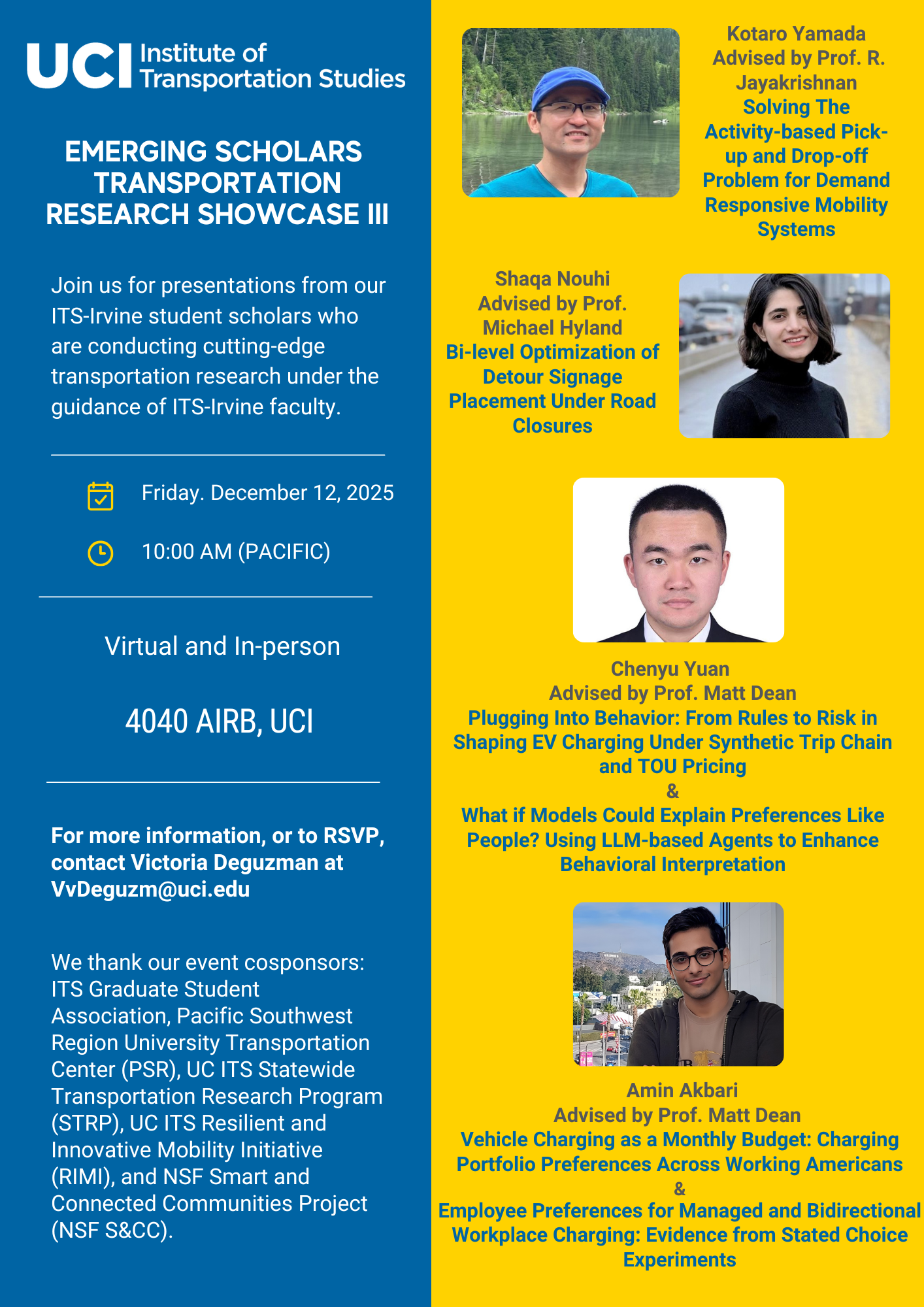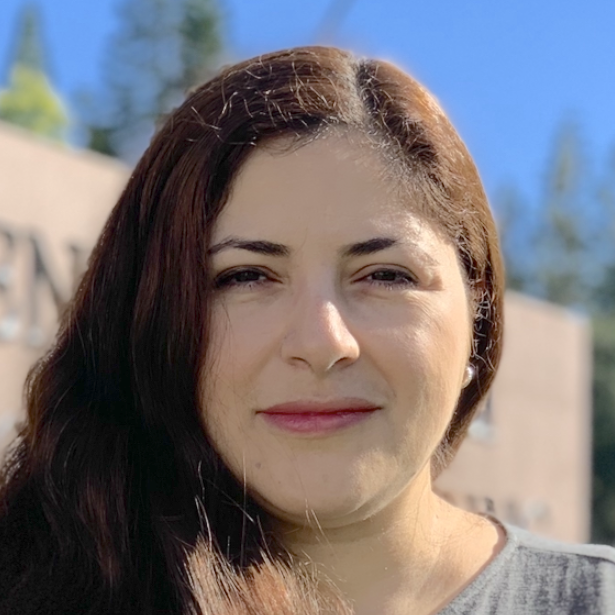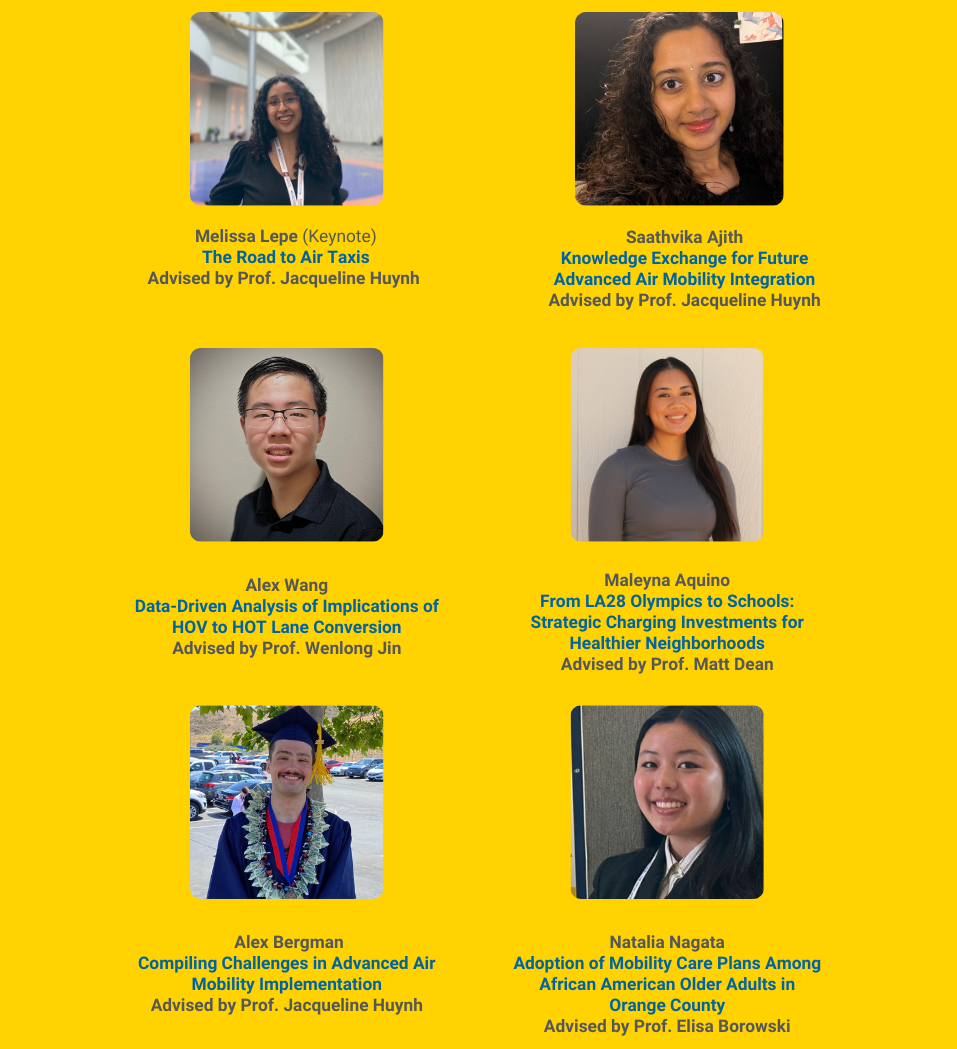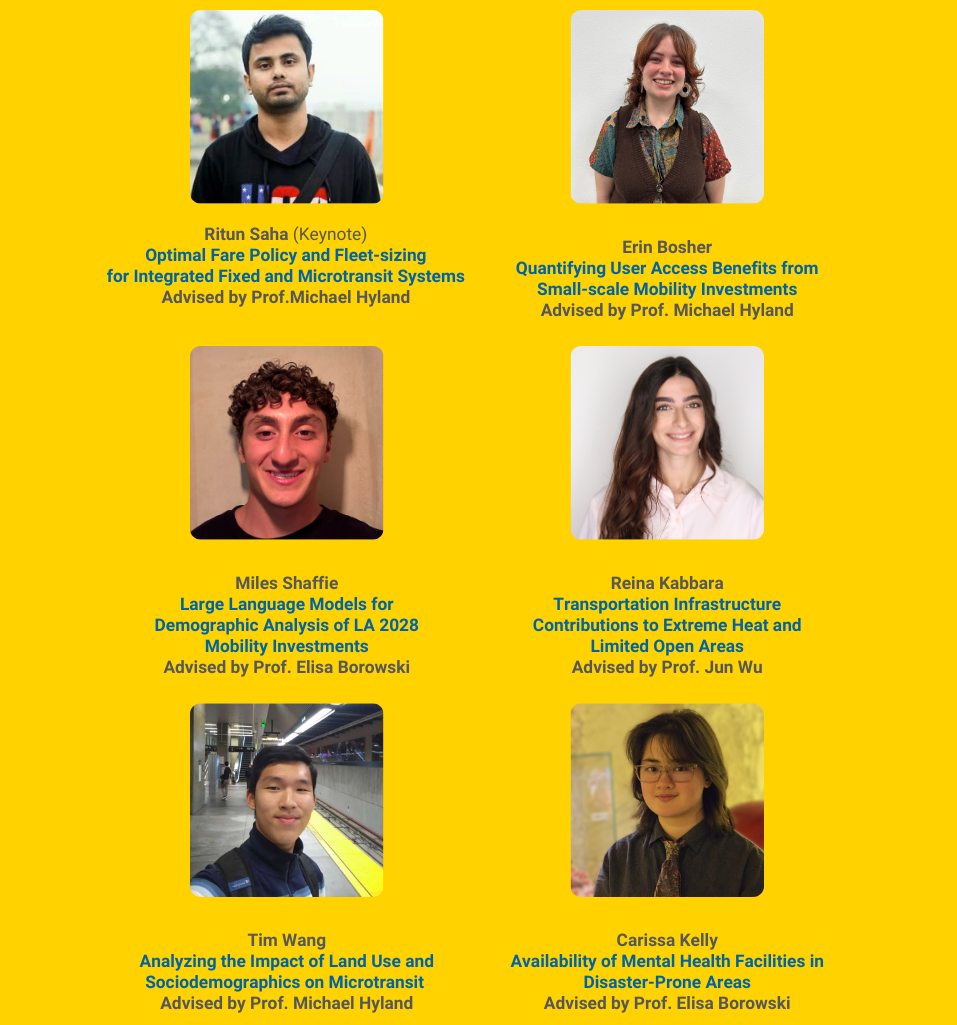Events
Featured Event

ITS Irvine Symposium on Emerging Research in Transportation 2026
March 6 – 7, 2026 University of California, Irvine, CA 92697, USA This symposium is for focused academic idea-exchange among rese...
Read MoreEvents
This talk details the recently launched center ACCELRT: Autonomous Cargo Carriers for Enhanced Logistics in Rural & Tribal areas. The challenge: our transportation infrastructure does...
Air traffic control (ATC) and air traffic management (ATM) operate across multiple timescales and decision layers, yet both are fundamentally shaped by uncertainty arising from...
Joint Estimation of a Semi-Markov Decision Process Model of Vacant Taxi Matching and Routing
Song Gao
We formulate a vacant ride-sourcing or taxi driver’s routing decision as an infinite-horizon semi-Markov decision process (SMDP) in a road network, where a driver decides...
Urban Inequality Through the Lens of Travel Networks
Elijah Knaap
In this presentation, I share findings from two projects examining the ways that travel network analysis provides a critical lens for urban inequality research. The...
Improving Productivity and Accessibility of Transit Systems with On-demand and Shared TNCs in Low Demand Areas
Negin Shariat
Agencies must maintain equitable access, even in low-demand areas, which can lead to costly, underused bus service. This study evaluates when those segments can be...
Autonomous Vehicles as Sensors (AVaS): Traffic State Estimation in the Operation of Mobility on Demand Services
Yunfei Zhang
Autonomous vehicles are rapidly becoming a central component of future mobility systems—but beyond enabling safe navigation, what else can we do with the rich data...
Multi-agent coverage optimization is a foundational problem with applications across surveillance, wireless network design, data harvesting, and Mobility-on-Demand (MoD) systems. Historically, the Voronoi partitioning method...
To explain persistent disparities in US electric vehicle adoption, this dissertation develops an innovative, scalable framework that models the mediating mechanisms of public perception in...
Emerging Scholars Transportation Research Showcase II
Melissa Lepe and others
Join us for presentations from our ITS-Irvine high school and undergraduate scholars who spent their summer participatingin our annual Pre-college Research Immersion (PRIME) and Transportation...
Dr. Sofia F. Franco is an Assistant Professor of Teaching in the Dept. of Economics at UCI. An applied microeconomist, her research agenda lies at...
Emerging Scholars Transportation Research Showcase I
Ritun Saha and others
Join us for presentations from our ITS-Irvine high school and undergraduate scholars who spent their summer participating in our annual Pre-college Research Immersion (PRIME) and...











